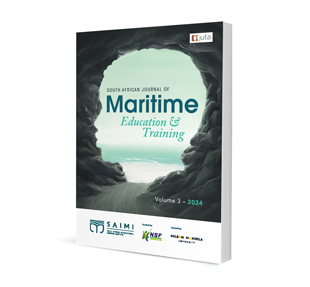
An Exploratory Review of Maritime Education and Training Through Collaborative Innovation Ecosystems: A Case for South Africa
Author: Nomtha Hadi
ISSN: 2790-783X
Affiliations: Lecturer: Nelson Mandela University Business School
Source: South African Journal of Maritime Education and Training, Volume 3 Issue 1, p. 15-30
https://doi.org/10.47348/SAJMET/2024/i1a2
Abstract
The aim of the United Nations Decade of Ocean Science for Sustainable Development, the ‘Ocean Decade’ (2021–2030) is to trigger the maritime education, training and ocean knowledge revolution needed to promote sustainable maritime economies. Achieving sustainable maritime growth requires identifying critical ocean priorities and promoting training, research capabilities and knowledge that will unlock the potential of science, education and innovation. The maritime industry is vast, complex and everchanging, and requires innovative, collaborative and solutions-oriented maritime education and training (MET). The need for engagement and communication between the various stakeholders and institutions, and the promotion of integrated and collaborative MET approaches, research and innovative activities for sustainable MET can never be overemphasised. South Africa is a country that has a vast coastline, stretching more than 3 900 kilometres, with access to the Atlantic and Indian Oceans, providing abundant opportunities for maritime activities. According to the Human Resource Development Council (HRDC) Annual Report 2020/2021 (HRDC 2023), it is crucial, now more than ever, for South Africa to promote the cutting-edge MET needed to develop the economy and ensure much higher rates of employment from all key sectors, including the maritime industries. A collaboration paradigm in which several training and research institutions collaborate in an ecosystem for the mutual benefit of all members and stakeholders is needed for growing a sustainable maritime economy.